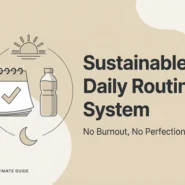In today’s fast-paced, team-oriented professional environment, your emotional intelligence (EQ) might be the most valuable asset you possess. But what does emotional intelligence mean, and why is it so crucial? The emotional intelligence definition encompasses the ability to recognize, understand, and manage your own emotions while also being attuned to the emotions of others. While technical skills might get you through the door, it’s your EQ that truly propels your career forward. Did you know that according to a recent study, emotional intelligence accounts for 58% of workplace performance and individuals with high EQ earn significantly more—up to $29,000 annually—than their peers with lower emotional intelligence? This is just one example of Reason #1: Higher Performance & Earnings that makes EQ so valuable.
The modern workplace has witnessed a remarkable shift. Where emotions were once considered inappropriate in professional settings, organizations now recognize that emotional intelligence separates good employees from exceptional ones. In fact, at higher organizational levels, EQ is believed to be twice as important as analytical and technical skills. The importance of emotional intelligence in leadership cannot be overstated, as it directly impacts team dynamics and overall organizational success.
Let’s explore why developing your emotional intelligence might be the most valuable career investment you make this year, and how it transforms not just your professional life, but your entire workplace experience.
🧠 What Exactly Is Emotional Intelligence?
Unlike IQ, which measures cognitive abilities like learning and problem-solving, EQ focuses on how well you navigate the complex emotional landscape of human interactions. The components of emotional intelligence include five key elements: self-awareness (understanding your own emotions), self-regulation (controlling disruptive emotions), motivation (being driven by internal factors), empathy (understanding others’ feelings), and social skills (managing relationships effectively).
Think of IQ as your car’s engine power, while EQ is your ability to navigate the road, read the map, and interact positively with other drivers. You might have the fastest engine, but without good navigation skills, you’ll likely take wrong turns or crash into obstacles along your career journey.
When these elements work in harmony, your professional interactions become more meaningful and productive. This is why emotional intelligence in the workplace is crucial for both individual and collective success.
🏆 Why Modern Companies Value EQ Over Technical Skills
Gone are the days when technical skills alone defined success. Today’s organizations prioritize emotional intelligence because teamwork drives productivity, and high-EQ employees foster harmonious team dynamics. In our knowledge economy, technical skills rarely differentiate top performers—everyone has access to similar information and training.
Companies face unprecedented rates of technological and market changes, and employees with high EQ adapt more readily to new circumstances. This Reason #2: Better Adaptability to Change makes them invaluable during transformations and periods of uncertainty. Organizations also recognize that tomorrow’s leaders need more than technical expertise—they need the ability to inspire, motivate, and develop others.
High-EQ workplaces typically experience better employee engagement, job satisfaction, and retention. Given the significant costs of recruitment and training, reducing turnover through better emotional environments makes financial sense. As one expert notes: “In an increasingly automated world, uniquely human capabilities like emotional intelligence become even more valuable.”
🌟 What Sets High-EQ Employees Apart?
Ever wondered what makes emotionally intelligent employees stand out? High-EQ individuals possess Reason #3: Superior Communication Skills with an uncanny ability to express themselves clearly while truly listening to others. They pick up on nuanced nonverbal cues that others might miss, allowing them to address situations before they become problems.
These employees are adaptability experts who can manage their emotional responses to disruption and uncertainty. They understand that emotions are data, not directives, and use this awareness to make measured responses rather than reactive ones. When faced with pressure, they remain solution-focused instead of complaining about what’s already happened.
Emotionally intelligent employees actively seek feedback about their blind spots and weaknesses. Unlike those who avoid criticism, high-EQ individuals view feedback as valuable information for growth rather than personal attacks. This continuous improvement mindset makes them invaluable team members who consistently evolve their skills and contribute to a positive workplace culture.
🤝 EQ vs. IQ: The Workplace Showdown
The contrast between high and low EQ employees can be dramatic, affecting everything from team dynamics to career advancement. Let’s break down the key differences:
When it comes to conflict resolution, high-EQ employees approach disagreements calmly and focus on solutions, while low-EQ individuals tend to escalate issues and struggle to find common ground. In team collaboration, emotionally intelligent workers build strong relationships and foster teamwork, while their less emotionally skilled counterparts struggle with interpersonal dynamics.
Stress management presents another striking difference—high-EQ employees handle pressure gracefully and stay composed, while low-EQ individuals become easily overwhelmed and react impulsively. This difference becomes increasingly significant as careers progress. As one professional aptly put it: “Your paper qualifications might get you through the front door, but to progress upwards, you need EQ.”
The leadership potential gap is perhaps most noticeable: high-EQ individuals inspire trust and lead by example, while those with lower emotional intelligence struggle to motivate and connect with teams. Clearly, high-EQ employees are better equipped to thrive in complex work environments where human interaction remains at the core of success.
🛠️ How High-EQ Employees Solve Workplace Conflicts
Conflict resolution is perhaps where emotional intelligence shines most brightly. When disagreements arise (and they inevitably do), high-EQ employees demonstrate Reason #4: Exceptional Conflict Resolution with a toolkit of effective strategies. Imagine a heated argument erupting during a team meeting—while tempers flare, an emotionally intelligent employee steps in with a different approach.
First, they stay calm under pressure, regulating their emotions to avoid escalating the situation. Then, they practice active listening without interruption, focusing completely on understanding all perspectives rather than preparing their rebuttal. This creates psychological safety where team members feel heard and valued.
High-EQ individuals also recognize and name emotions—both their own and others’—without judgment. By acknowledging feelings directly (“I see this is frustrating—let’s find a solution”), they prevent emotional undercurrents from sabotaging productive discussion. Their approach remains solution-oriented rather than blame-driven, focusing on moving forward constructively rather than being right at all costs.
This ability to diffuse tension makes emotionally intelligent employees indispensable in any workplace. As one team leader shared: “When a blunt criticism demoralized our team, a colleague’s calm intervention restored harmony and productivity with just a simple phrase: ‘Let’s listen to everyone’s ideas.'”
🧘 Stress Management: EQ’s Hidden Superpower
Stress is inevitable at work—but how we handle it makes all the difference. The modern workplace can be a pressure cooker of deadlines, expectations, and constant change. Here’s where Reason #5: Effective Stress Management becomes a lifeline rather than just a nice-to-have skill.
High-EQ individuals excel at managing stress because they recognize their triggers and take proactive steps to address them. They understand that stress itself isn’t the enemy—it’s how we respond to stress that determines its impact. Emotionally intelligent employees practice techniques like mindfulness or reframing negative thoughts to maintain perspective during challenging times.
Research shows that employees with strong EQ recover 30% faster from setbacks, maintaining productivity under pressure. They also recognize stress signals in themselves and others before burnout occurs, potentially noticing increased irritability in a colleague and checking in with them, or recognizing their own reduced focus as a sign they need a break.
Perhaps most importantly, emotionally intelligent people maintain boundaries that protect their well-being without compromising their responsibilities. Rather than viewing self-care as selfish, they understand that maintaining their emotional health is essential for sustained productivity and effective teamwork.
🌱 Boosting Team Collaboration Through Emotional Intelligence
Teams thrive when members understand each other’s emotions and work toward shared goals. Reason #6: Enhanced Team Collaboration is achieved through emotional intelligence by encouraging open communication, building trust through empathy, and strengthening relationships by appreciating diverse perspectives.
Want a more cohesive team? Try these EQ-driven strategies: practice active listening by paraphrasing colleagues’ ideas to show understanding; engage in empathy exercises to appreciate different viewpoints; and use transparent communication with “I feel” statements to express concerns without accusation.
Organizations that invest in developing their employees’ emotional intelligence often see higher morale, improved productivity, and lower turnover rates. Teams with high collective EQ report 40% higher engagement and 25% fewer misunderstandings—impressive numbers that translate directly to bottom-line results.
Whether you’re leading a team or participating as a member, your emotional intelligence creates ripple effects throughout the group. By modeling emotionally intelligent behaviors, you establish norms that others naturally begin to follow, creating a positive cycle of improved communication and stronger relationships.
📈 5 Ways to Elevate Your EQ at Work
The beauty of emotional intelligence is that, unlike IQ which remains relatively stable throughout life, EQ can be developed at any career stage. Here are some practical tips to boost your emotional intelligence:
- Practice self-awareness: Reflect on your emotions regularly—what triggers them? How do they affect your decisions? Set aside 5-10 minutes daily to consider your emotional responses to work situations. Were your reactions proportional and effective?
- Improve your empathy skills: Engage in active listening during conversations and try to understand others’ viewpoints without judgment. When interacting with colleagues, mentally put yourself in their position—what priorities, pressures, and perspectives might they have?
- Work on self-regulation: Learn techniques like deep breathing or journaling to manage intense emotions effectively. Before responding in emotional situations, take a moment to breathe and choose your response rather than reacting automatically.
- Seek feedback: Ask colleagues for input on how you handle interpersonal situations—it’s a great way to identify blind spots. Request specific feedback about your communication and leadership style rather than vague comments.
- Learn from EQ mentors: Identify someone in your workplace who demonstrates high emotional intelligence and observe how they handle challenging situations. Consider asking them for guidance on specific scenarios you find difficult.
Remember, developing EQ isn’t an overnight process—it requires consistent effort and practice. But the rewards—better relationships, reduced stress, and career advancement—make it well worth the investment.
🌟 Why Emotional Intelligence Is Your Career Superpower
In today’s workplace, emotional intelligence isn’t just a “nice-to-have” skill—it’s essential for success. From resolving conflicts to managing stress and fostering collaboration, high-EQ individuals bring immense value to their teams and organizations. The benefits of emotional intelligence in the workplace are numerous, including improved decision-making, enhanced interpersonal skills, and increased resilience.
As the World Economic Forum notes, emotional intelligence ranks among the most vital job skills for the future workplace. Fortune 500 companies aren’t investing in EQ training without good reason—they recognize Reason #7: Future-Proof Career Skills since in an increasingly automated world, uniquely human capabilities like emotional intelligence become even more valuable.
So whether you’re aiming for a leadership role or simply want to be a better teammate, investing in your emotional intelligence will pay off in spades—not just professionally but personally too. After all, in a world of AI and automation, emotional intelligence is what makes us irreplaceable.
Ready to start your EQ journey? The future belongs to those who lead with empathy and self-awareness!
📊 Workplace EQ Self-Assessment Quiz
Discover your emotional intelligence strengths and areas for growth.
Your Workplace EQ Profile
Self-Awareness Score: 0/4
Self-Regulation Score: 0/4
Motivation Score: 0/4
Empathy Score: 0/4
Social Skills Score: 0/4
Overall EQ Score: 0%








